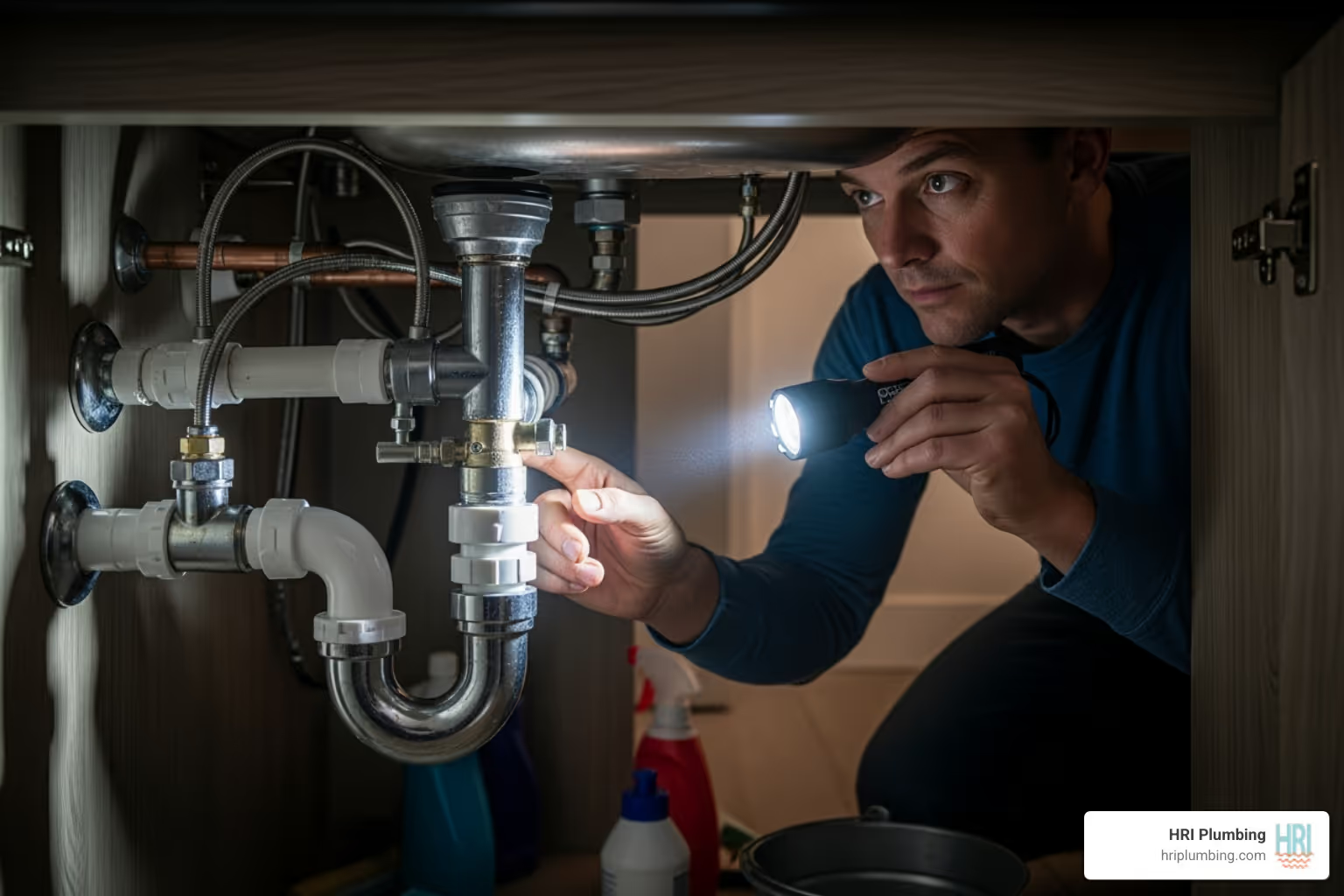Why Regular Plumbing Upkeep is a Smart Investment
Preventative plumbing maintenance is the practice of regularly checking your home's plumbing system to prevent problems before they start. Instead of waiting for costly emergencies, homeowners can take small steps to keep pipes, fixtures, and water systems running smoothly.
Key preventative maintenance tasks include:
- Monthly leak checks around faucets, toilets, and under sinks
- Seasonal drain cleaning with baking soda and vinegar
- Annual water heater flushing to remove sediment buildup
- Water pressure monitoring (ideal range: 40-60 PSI)
- Winter pipe insulation to prevent freezing
- Professional inspections every 1-2 years
The benefits go far beyond saving money on your water bill. A single faucet leak can waste 180 gallons per week, and a running toilet can waste hundreds of gallons daily. Regular maintenance protects your property from water damage, which can cost thousands in repairs to walls and flooring. It also prevents mold growth, extends the life of expensive appliances like water heaters, and ensures a safe, sanitary environment for your family.
Consistent upkeep provides peace of mind, knowing your plumbing won't fail unexpectedly. Catching issues early through simple checks leads to minor repairs instead of major, disruptive disasters.
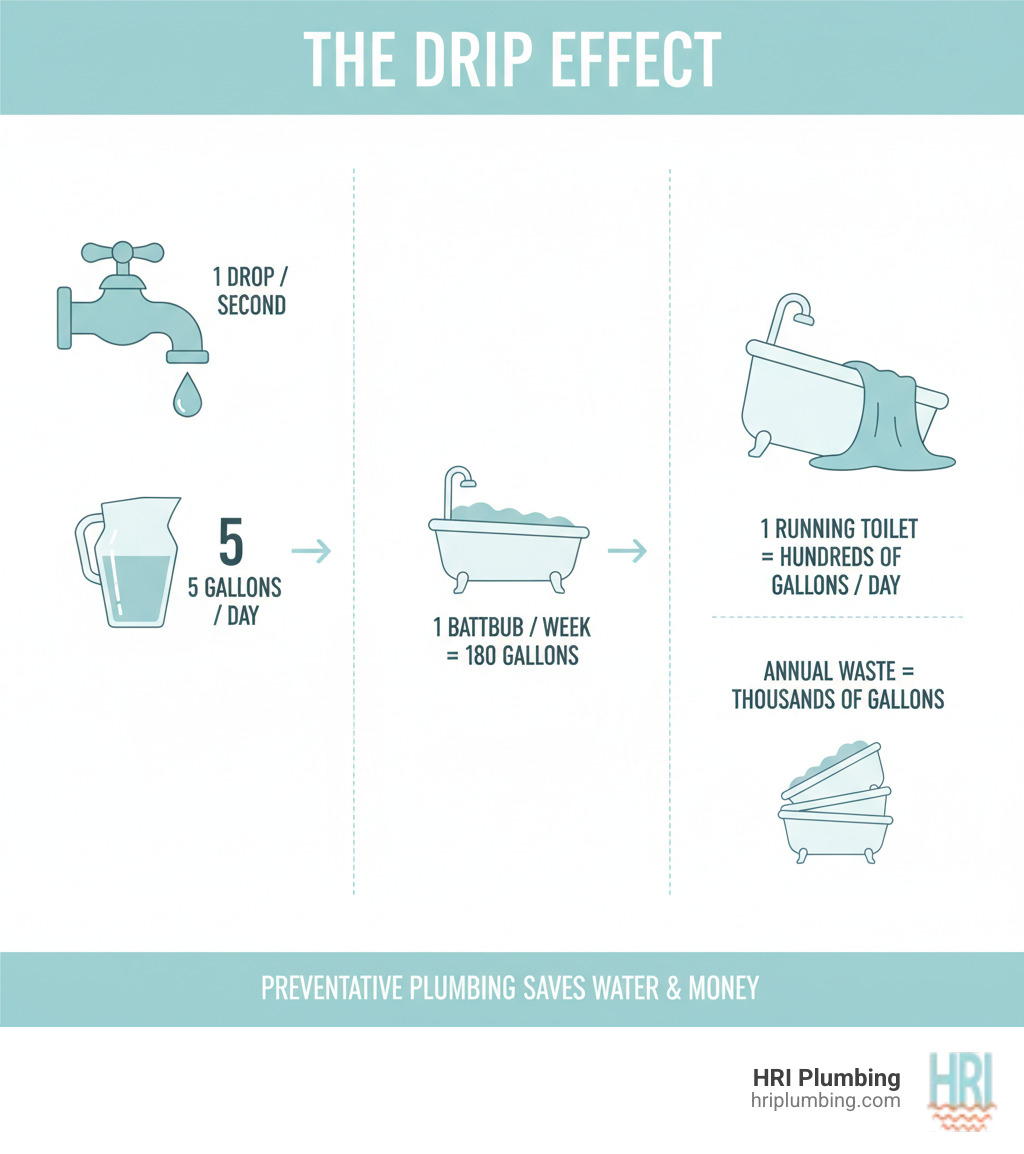
Preventative plumbing maintenance vocab to learn:
Your home's plumbing system is its lifeblood, but like any hard-working system, it needs regular attention. Neglecting it can turn a small drip into a flood of financial woes. Proactive steps not only reduce water bills but also offer crucial property protection. Unchecked leaks lead to extensive water damage and create a breeding ground for mold, posing health risks. By keeping your system in top shape, you avoid costly home repairs, extend the life of your fixtures, and enjoy your home with fewer unexpected surprises.
Your Ultimate Preventative Plumbing Maintenance Checklist
Think of preventative plumbing maintenance as your home's health checkup—a little attention now saves you from major headaches later. We've organized these tasks by area so you can tackle them room by room.
Kitchen & Bathroom: Your First Line of Defense
These busy spaces see the most water action, making them a prime spot for potential issues.
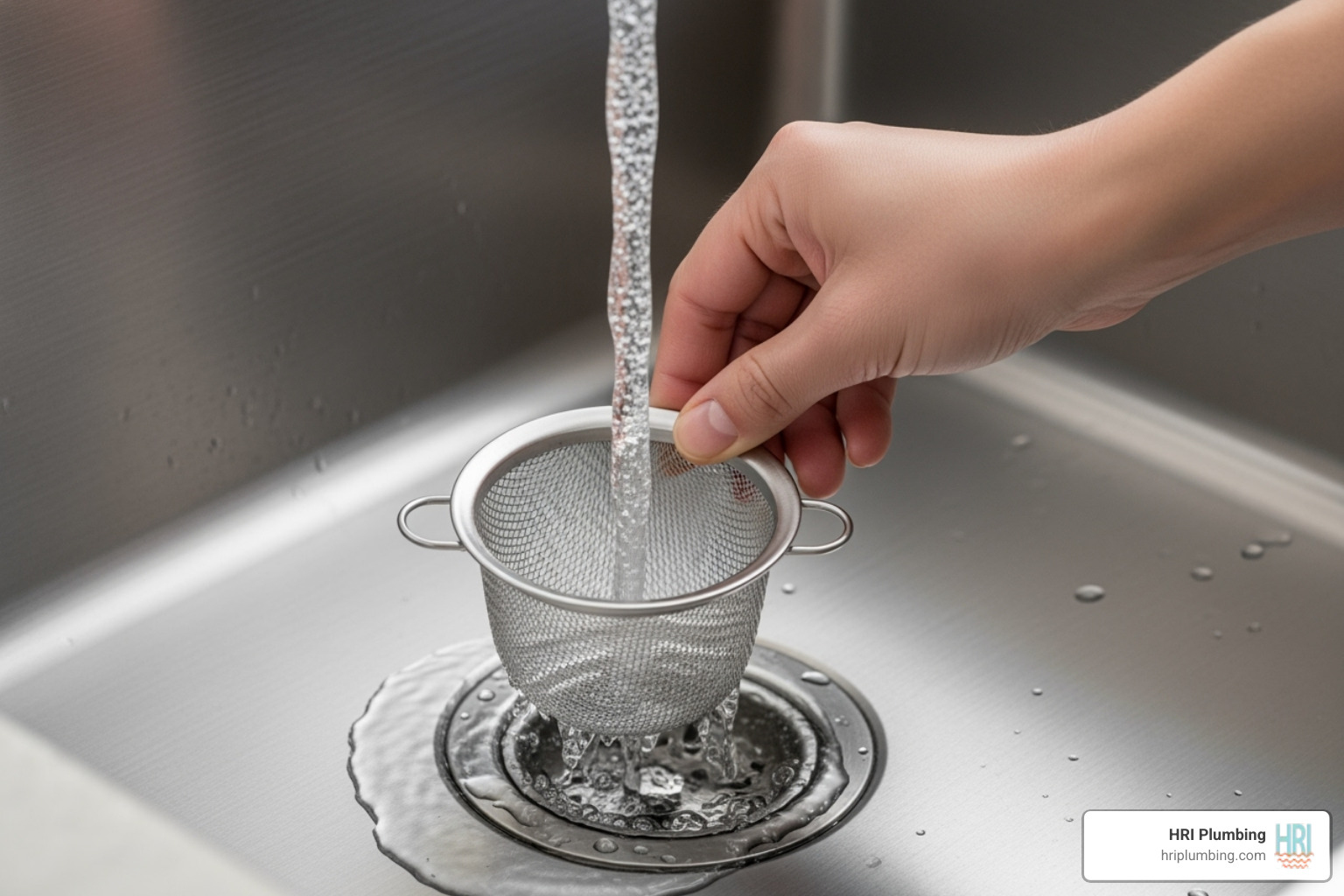
Check for faucet leaks monthly. That innocent drip can waste up to 180 gallons per week. Most leaks are caused by worn washers or O-rings, which are simple, inexpensive fixes when caught early.
Keep your showerheads flowing freely with a monthly check. If pressure is weak, mineral deposits are likely the cause. Remove the showerhead and soak it in white vinegar overnight to restore flow.
Test your toilets for silent leaks. Drop food coloring into the tank and wait 30 minutes. If color appears in the bowl without flushing, you have a leak, usually from a worn flapper that needs replacing. This quick fix can save hundreds of gallons daily.
Protect your drains. Your toilet is not a trash can. Never flush paper towels, wipes (even "flushable" ones), feminine products, cotton swabs, dental floss, hair, or medications.
Keep drains clear naturally with a monthly baking soda and vinegar treatment. Pour half a cup of baking soda down the drain, followed by half a cup of vinegar. Wait 20 minutes, then flush with hot water. This gentle method breaks down buildup without harsh chemicals. Use mesh strainers in sinks and showers to catch hair and debris before they cause a clog.
More info about Drain Cleaning.
Utility Room & Basement: Protecting Core Home Systems
This area houses the heroes of your plumbing system. Don't let them be out of sight, out of mind.
Your water heater deserves annual attention. Sediment buildup makes it work harder and increases energy costs. Flush it once a year (twice for hard water) to remove sediment and extend its life. While you're there, ensure the temperature is set to 120°F to prevent scalding and test the temperature and pressure relief valve.
More info about Water Heater Repair & Replacement.
Test your sump pump monthly. Pour a bucket of water into the pit to ensure it activates, pumps the water out, and shuts off. Clean any debris from the pit and check that the discharge pipe flows away from your foundation.
More info about Sump Pump Repair & Replacement.
Locate and test your main water shut-off valve. Knowing where this is and how to use it can save you from thousands in water damage during an emergency. Turn it once a year to prevent it from seizing.
Whole-Home Health: A Guide to Simple DIY Preventative Plumbing Maintenance
Your entire plumbing system sends signals about its health. Learning to read them helps you catch problems early.
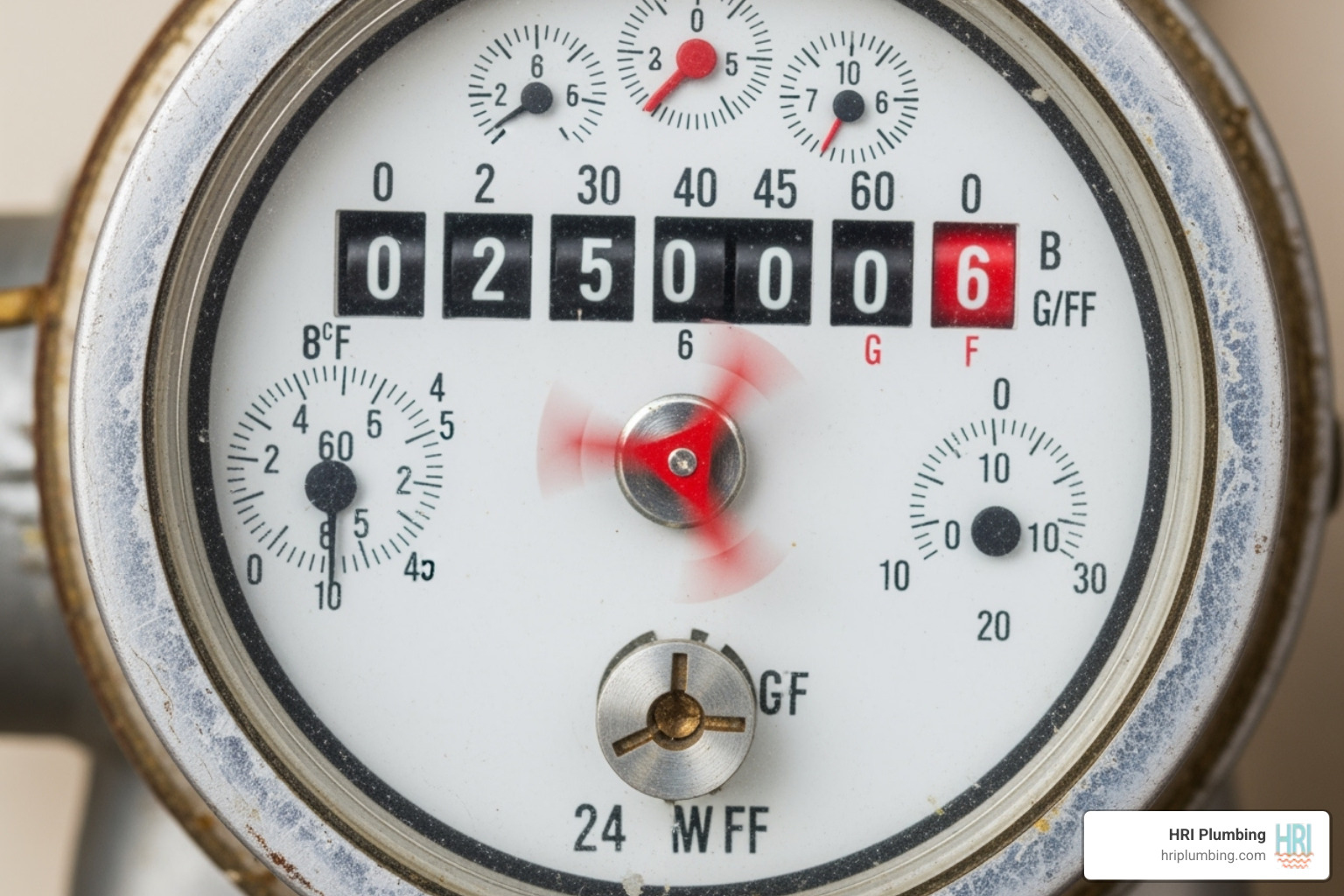
Watch for signs of hidden leaks. Unexplained spikes in your water bill, musty odors, mold growth, or damp spots on walls and ceilings are all red flags.
Use your water meter as a detective tool. Turn off all water in your home, note the meter reading, and check it again in 30 minutes. If the reading has changed, you have a leak. The fact that faucet water leaks can waste a lot of water makes catching them early a priority.
More info about Leak Detection Services.
Monitor your water pressure. The ideal range is 40-60 PSI. Pressure above 80 PSI can stress pipes and fixtures, leading to leaks. You can test this with a simple gauge on an outdoor faucet.
Inspect visible pipes for corrosion, rust, or green/white deposits on copper pipes. If you have older cast iron or clay drain lines, consider a professional camera inspection to check for tree root intrusion.
Seasonal Safeguards: Preparing Your Plumbing for Winter
A little preparation before the cold hits Springfield, Rochester, and Jacksonville prevents the disaster of frozen and burst pipes.
Insulate exposed pipes in unheated areas like basements, crawl spaces, and garages. Foam pipe insulation is inexpensive and easy to install. Also, seal any cracks or gaps that let cold air in.
Prepare outdoor faucets and hoses before the first freeze. Shut off their water supply, open the spigots to drain them, and disconnect and store your hoses.
Prevent frozen pipes during extreme cold by letting faucets on exterior walls drip slowly. If you travel during winter, keep your heat set to at least 55°F to protect your plumbing system.
Ways to Avoid Disruptive Plumbing Problems.
Partnering with a Pro for Lasting Protection
We've covered a lot of DIY preventative plumbing maintenance, but some situations require a professional. Attempting a complex fix can turn a manageable problem into a disaster.
When to Call for Professional Help
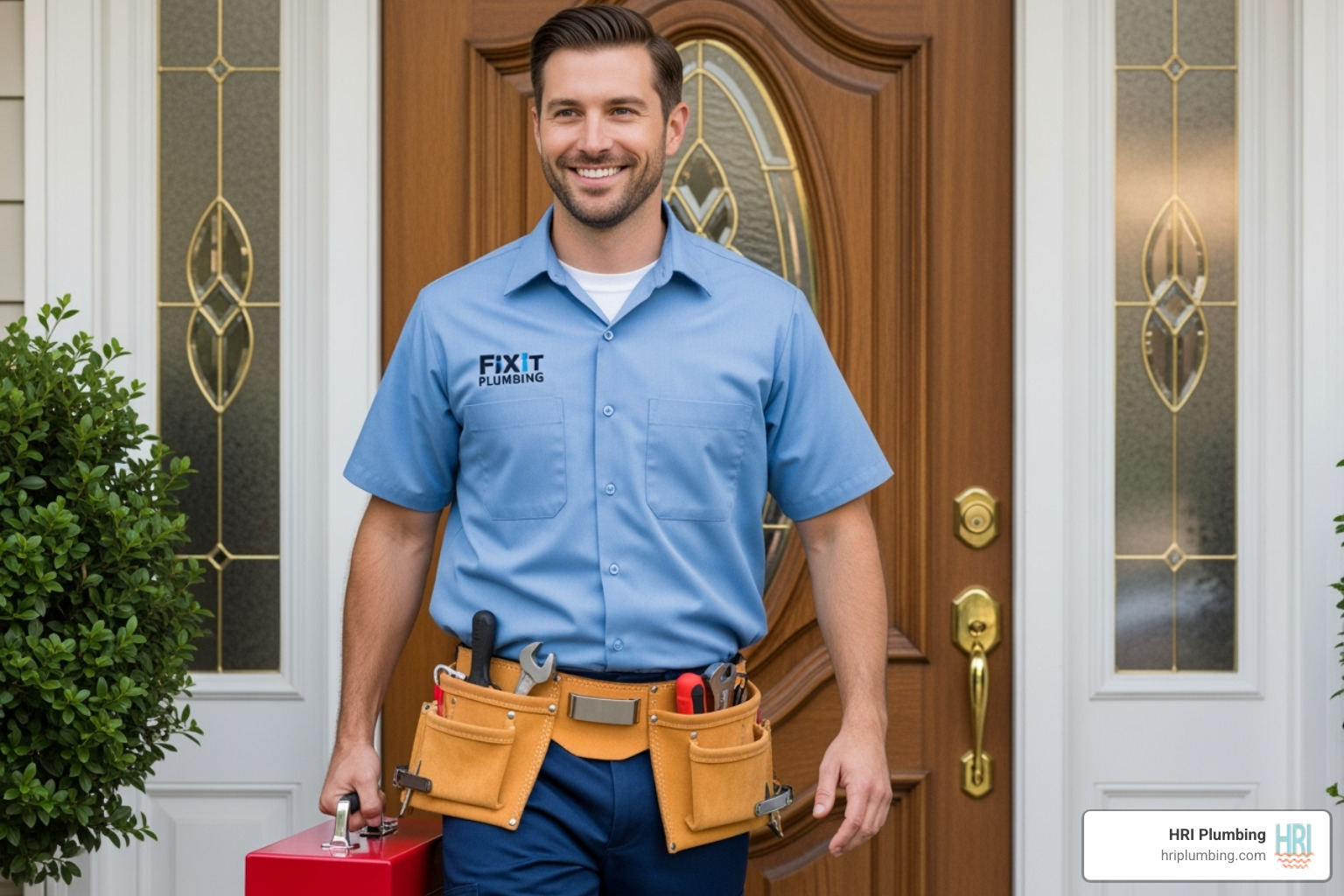
Knowing when to call can save you from an expensive renovation. Here's our advice.
Persistent clogs: If a clog returns despite your efforts, or if multiple drains are backing up, the problem may be in your main sewer line. This is not a DIY job.
Low water pressure: If low pressure affects your entire home, it could signal a hidden leak or a blockage in your main line.
Sewer odors: This unpleasant smell can be dangerous, indicating a cracked vent pipe or a sewer line break that requires professional diagnosis.
Major leaks or burst pipes: This is an emergency. First, shut off your main water supply. Second, call us immediately. We offer emergency plumbing services because we know damage happens fast.
No hot water: Beyond checking the pilot light or circuit breaker, issues with heating elements or thermostats require professional attention.
Gurgling drains or toilets: These sounds often indicate venting issues or blockages that can lead to sewage backup if ignored.
If a problem persists, requires specialized tools, or poses a safety risk, it's always best to call a licensed professional.
The Importance of Professional Preventative Plumbing Maintenance
While your DIY efforts are fantastic, nothing replaces the trained eye of a professional plumber.
Professional inspections should happen annually for most homes, or every two years for newer systems. For older homes, we strongly recommend annual visits.
Our comprehensive check-ups are a complete physical for your plumbing. We inspect pipes and fixtures, test water pressure, hunt for hidden leaks with specialized equipment, assess your water heater, test sump pumps, and evaluate sewer lines. Our trained eyes can spot subtle signs of trouble like early corrosion or root intrusion.
Avoid potential disasters with a preemptive plumbing inspection—catching problems early is always less expensive than emergency repairs.
Understanding your homeowners insurance is also key. Most policies cover sudden water damage but not repairs for parts that failed due to neglect. Regular maintenance helps you address wear and tear before it becomes a costly, uncovered problem.
At HRI Plumbing, we serve homeowners in Jacksonville, Springfield, Rochester, Chatham, Sherman, and Rushville, IL. Our maintenance plans are designed to keep your system running smoothly, giving you peace of mind.
Don't wait for an emergency. Be proactive and protect your home with regular professional care. Schedule your comprehensive plumbing check-up today and let us help you maintain a healthy home.


